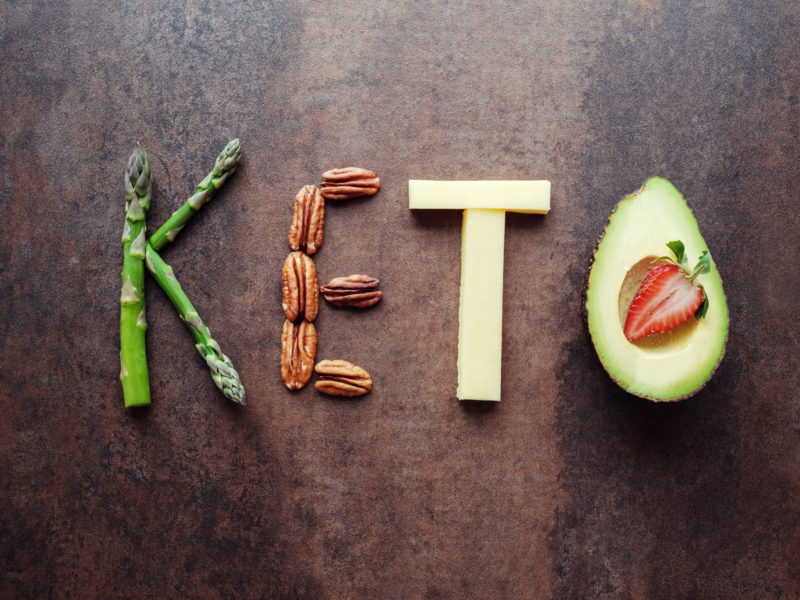More and more people are swearing by the ketogenic or keto diet. This low-carb, high-fat diet has been helping people lose pounds since going mainstream several years ago, and there’s no shortage of such success stories in social media. Celebrities like Kim Kardashians and Lebron James further the keto name among their millions of followers.
But no matter how effective, every new diet trend will always have its share of skeptics—which isn’t a bad thing. Knowing the ins and outs of a lifestyle, especially when it involves eating and drinking, can mean the difference.
For example, do you know that the keto diet isn’t a recent invention? James Wheeless, a pediatric neurology specialist at St. Jude Children’s Research Hospital, said it goes back to the early 20th century. In a study of 20 epileptic patients, French physicians discovered that those who fasted had experienced fewer seizures. (1)
Before you conclude that keto can cure epilepsy, most physicians treat it as an alternative rather than the primary. Here are several other things you need to know if you plan to jump on the keto bandwagon.
1) Diet By Starvation
You’ve probably seen too many posts and pictures of people who went keto from start to finish. However, achieving that result takes a great deal of effort than you might think. For starters, as the term ‘ketogenic’ implies, this diet literally involves starving yourself to lose weight.
The low-carb, high-fat diet is designed to force the body to enter a state called ketosis. When the body runs out of carbs from food to burn, it uses up its fat reserves to continue providing energy. It does this by having the liver produce more ketone bodies (or ketones), which break down the more calorically dense fat.
Burning carbs takes longer than burning fat, so the former can make you feel full longer. With a keto diet, however, you might feel hungry more often. You can work around this by adding more protein (recommended up to 20% of a keto intake) and fiber in place of carbs. While it might not be as fulfilling, protein and fiber can satiate your hunger somehow.
It’s not unusual for keto-friendly foods to carry protein and fiber. The top Australian keto snacks, for instance, can contain at least five grams of protein for every gram of carb. Some snacks have a near-equal ratio of protein and fat.
2) Missing Out on Other Nutrients
In her Insider article, lifestyle writer and editor Jennifer Still narrated her keto experience. Over her one-year keto diet, she lost a total of 120 lbs. and ‘healed’ her dysfunctional relationship with food. While a success story in itself, she ditched keto shortly after for several reasons, the bottom line being the lack of variety.
Doctors say a keto diet won’t trigger ketosis right away, as the body needs time to adjust; it may take somewhere between one and three days. However, it only takes a serving of carbs to take the body out of ketosis and derail the whole thing. Because of this, keto dieters can’t afford even a single cheat day.
Moreover, people would still like to include more variety in their meals, but that’s not much of an option in a keto diet. Even if you can grab keto granola bars or 15 types of keto breads in Australia, the bottom line is that keto foods are only concerned with low carbs, moderate protein, and high fat, maybe some fiber on the side. Any other nutrient may end ketosis prematurely.
This restriction means keto isn’t suitable for anyone suffering from any illness affecting the liver, pancreas, or thyroid gland. Also, according to University of Chicago Medicine clinical dietitian Rachel Kleinman, anyone new to keto may experience flu-like symptoms, called ‘keto flu.’ (2)
On top of nutrients, keto can make dining out more of a hassle. There are only a few restaurants that offer keto-friendly menu items, fewer still 100% keto restaurants.
3) Keto Can’t Last Forever

But the end of keto doesn’t mean it’s the end at all. You may have lost several pounds thanks to it, but it’s easy to regain that weight by binging to celebrate coming out of keto. Even worse, the constant back and forth between dieting and feasting can take its toll on your mental well-being.
For this, dietitians advise taking it slow in the first few days after completing the diet, adding 10 grams of carbs every day for the first week at most. In the coming weeks, determine the number of carbs that strikes a balance between weight control and satisfaction. Consider also increasing protein intake, as it requires more calories to burn it off. (3)
No one wants to go back to starving themselves to lose some pounds, so eating healthy is more critical post-keto than before. In the end, nothing’s more effective than a well-rounded diet of carbs, protein, and fruits and vegetables.
4) Overdoing is Dangerous
Don’t get swept away by the need to achieve perfection. Like any other diet, a keto diet can be harmful when you overdo it. Doctors warn about a disease that can arise from having too many ketones in the bloodstream, known as diabetic ketoacidosis.
This condition is the reason a keto diet is deemed too risky for anyone suffering from pancreatic problems. Without enough insulin running through your veins, there’ll be a massive buildup of ketones, which can trigger symptoms like excessive thirst, sudden weakness, and shortness of breath. (4)
Conclusion
All these don’t imply that a keto diet is dangerous. Experts have seen and admitted to its myriad of benefits—weight loss and more. But if you want to benefit from it, you should be well aware of its pros and cons. Working hard and eating smart are the keys to fitness.
Sources:
- “History of the ketogenic diet,” https://onlinelibrary.wiley.com/doi/10.1111/j.1528-1167.2008.01821.x
- “Ketogenic diet: What are the risks?” https://www.uchicagomedicine.org/forefront/health-and-wellness-articles/ketogenic-diet-what-are-the-risks
- “How to Maintain Your Health and Weight Loss Results After the Keto Diet,” https://www.everydayhealth.com/ketogenic-diet/how-keep-weight-off-after-keto-diet/
- “Diabetic ketoacidosis,” https://www.mayoclinic.org/diseases-conditions/diabetic-ketoacidosis/symptoms-causes/syc-20371551
Interested in eating more healthy for life?
Listen to our friends over at Wellness Force Radio to learn about the “5 Must Have Nutrition Fundamentals”








 5 Reasons Why Proper Technique is Required for Weight Training
5 Reasons Why Proper Technique is Required for Weight Training